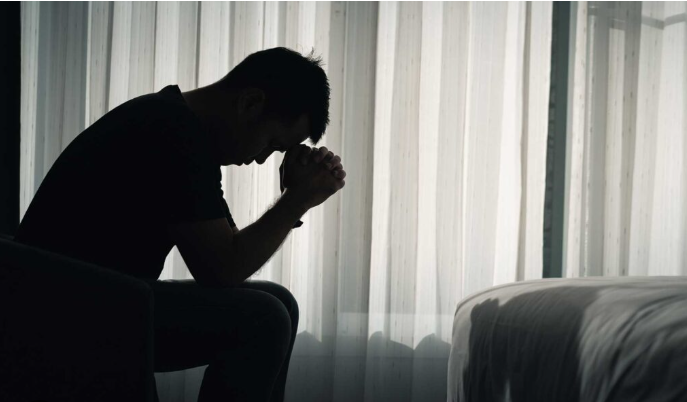Table of Contents

Introduction
Depression is like carrying a heavy backpack you can’t take off. It drains your energy, dims your joy, and makes even simple tasks feel impossible. But here’s the good news: understanding depression causes, effects, and solutions can help you lighten that load. In this guide, we’ll break down what depression really is, why it happens, and—most importantly—7 practical ways to find hope again. Whether you’re struggling or supporting someone who is, this roadmap is for you. Let’s start the journey.
What Is Depression? More Than Just Sadness
Depression isn’t just “feeling blue.” It’s a mental health condition that affects your thoughts, body, and daily life. Imagine waking up every day with a foggy brain, zero motivation, and a heart that feels too heavy to care. That’s depression.
Key Signs of Depression:
- Constant sadness or emptiness
- Loss of interest in hobbies
- Fatigue or low energy
- Trouble sleeping (or sleeping too much)
- Feelings of worthlessness
Why It Matters:
Understanding depression causes, effects, and solutions starts with recognizing it’s not a choice or weakness. It’s a real illness that needs real care.
Understanding Depression Causes: Why Does It Happen?
Depression doesn’t have one single cause—it’s like a puzzle with many pieces. Let’s break down the most common factors:
1. Brain Chemistry Imbalances
Your brain uses chemicals like serotonin and dopamine to control mood. When these are out of balance, it can trigger depression.
2. Genetics and Family History
If someone in your family has depression, you might be more likely to experience it too.
3. Trauma or Stressful Life Events
Losing a loved one, divorce, or abuse can “flip a switch” for depression.
4. Chronic Illness or Pain
Conditions like diabetes or arthritis can wear down your mental health over time.
Did You Know? Even positive events (like a new job) can cause stress that leads to depression.
The Effects of Depression: How It Changes Lives
Depression doesn’t just hurt your mind—it impacts your whole life. Here’s how:
Emotional Effects
- Guilt or shame about feeling “broken”
- Irritability or anger outbursts
- Loss of hope for the future
Physical Effects
- Weight gain or loss
- Headaches or stomachaches
- Weak immune system (getting sick often)
Social Effects
- Pulling away from friends and family
- Trouble at work or school
- Feeling alone even in a crowd
Real Talk: Depression can make you feel like you’re stuck in a dark room with no door. But there is a way out.
Understanding Depression Solutions: 7 Ways to Find Hope
Now for the part you’ve been waiting for: 7 ways out of depression. These aren’t quick fixes, but they’re proven steps to help you heal.
1. Talk to a Therapist
Therapists are like guides for your mind. They help you:
- Spot negative thought patterns
- Learn coping skills
- Process past trauma
Pro Tip: Look for therapists who specialize in CBT (Cognitive Behavioral Therapy).
2. Move Your Body Daily
Exercise releases “feel-good” chemicals in your brain. You don’t need to run a marathon—just:
- Dance to your favorite song
- Take a 10-minute walk
- Try yoga or stretching
3. Eat Mood-Boosting Foods
What you eat affects your brain! Add these to your diet:
- Omega-3s (like salmon or walnuts)
- Leafy greens (spinach, kale)
- Dark chocolate (yes, really!)
4. Build a Support Squad
You don’t have to face depression alone. Reach out to:
- Trusted friends or family
- Support groups (online or in-person)
- Helplines like the National Suicide Prevention Lifeline
5. Practice Mindfulness
Mindfulness helps you stay grounded in the present. Try:
- Deep breathing exercises
- Meditation apps like Headspace
- Writing down 3 things you’re grateful for each day
6. Set Small, Achievable Goals
Depression loves to whisper, “You can’t do anything.” Prove it wrong with:
- Making your bed
- Drinking a glass of water
- Texting a friend
7. Ask About Medication
Medication isn’t for everyone, but it can rebalance brain chemistry. Talk to a doctor about:
- Antidepressants (like SSRIs)
- Side effects to watch for
- How long it takes to work
Remember: Healing isn’t a straight line. Celebrate tiny wins!
Breaking the Stigma: Why Talking About Depression Matters
Too many people suffer in silence because they’re afraid of being judged. Here’s how we can change that:
- Share your story (if you’re comfortable)
- Educate others about depression causes, effects, and solutions
- Use kind words like “I’m here for you” instead of “Just cheer up!”
Fact: 1 in 5 adults in the U.S. experiences mental illness each year. You’re not alone.
You might like: 10 Simple Daily Habits for a Healthier Life Try These Today
Final Thoughts: Your Journey Starts Today
Understanding depression causes, effects, and solutions is the first step toward taking your life back. Whether you try therapy, mindfulness, or leaning on loved ones, every small effort counts. Depression might feel like a storm, but even storms pass.
Your Call to Action:
- Bookmark this guide for tough days
- Share it with someone who needs hope
- Take one small step from the 7 solutions today
You deserve to feel better. Let’s make it happen—together. 🌟